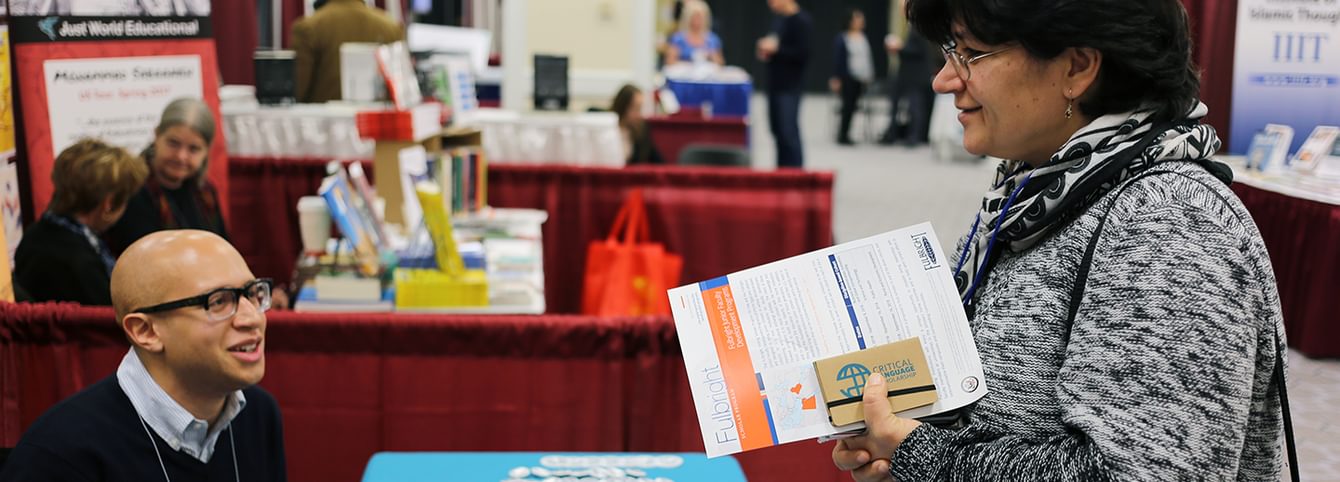Frequently Asked Questions
If you have a question that is not addressed here or in our general FAQ, please reach out to us at cls@americancouncils.org or at 202.833.7522.
My campus does not offer courses in any critical languages. How can my students make a case for their continued language study plan without access to any courses?
One misconception is that successful CLS applicants must come from universities with strong existing critical language programs. Although the application writing process will undoubtedly be easier for these students, the CLS Program is premised in part on the insufficient availability of U.S.-based instruction in critical languages. As such, we seek out and encourage students to apply who lack access to other opportunities.
There are many ways for an applicant to continue their studying and learning of a language, including but not restricted to taking courses at their home institution. Self-study, virtual study, or engagement with a separate campus or local immigrant community are all creative ways for a student to remain engaged with their application language.
How can I help a student who is not sure what language to choose? Are any languages relatively more or less competitive than others?
Many applicants to the CLS Program want to know what language represents their best chance of being awarded a scholarship, and we want to encourage applicants to avoid this mentality. Although the CLS Program is very selective in the sense that only 10% of applicants will end up participating on the program, every applicant who can provide a compelling response to each of the required essay questions can make themselves competitive. Applicants who try to “game the system” typically are not able to make convincing connections between their career goals and the study of the language they are applying to.
Encourage applicants to consider how the goals of the CLS Program—developing a broad base of American professionals who are proficient in languages critical to U.S. economic prosperity and national security—match their own goals, and how they can use the investment of the CLS Program to contribute back to their communities. Success will grow out of sincere application to these goals.
We also recommend that in addition to working with CLS advisors, applicants speak with teaching faculty and instructors who may be able to help them reflect on what is happening in their chosen field internationally, and make a connection between their career goals and knowledge of a critical language.
Can CLS provide general feedback on applications from my institution?
Because of the high volume of applications the CLS Program receives, we cannot provide individual feedback on applications or a set of applications.
For advisors who wish to understand the selection process more thoroughly, we recommend volunteering to serve as an evaluator for the CLS Program. In reading a larger volume of applications and evaluating them according to the selection rubric, advisors can gain critical insight into the process and use the experience to advise students in future application cycles.
How can I find out if there are any previous CLS award recipients from my institution?
The CLS Program keeps a list of program alumni that is searchable by institution name here: https://clscholarship.org/universities.
Alumni are a great resource to help promote the program to students on your campus and demonstrate the impact of study abroad generally and the CLS Program specifically.
One of my students is an alternate for the CLS Program. When can they expect to hear a final decision, and what are their odds of becoming a finalist?
Once initial CLS finalist notifications are sent in late February or early March, finalists have about two weeks to either accept or decline the award. Alternates are not ranked, but are promoted with approval from the Department of State on a rolling basis until all scholarship spots are filled. The number of students promoted from alternate to finalist status varies from year to year and from language to language depending on how many finalists decline the scholarship. It’s impossible to predict the likelihood of any student’s promotion to finalist. There is no official cut-off date for the promotion of finalists other than the start of each summer institute.


